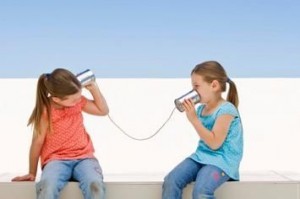Does Your Child Need Speech Therapy?
Every child develops speech at his or her own pace. If you think your child might have a communication problem, you should consider seeking professional help sooner rather than later. While there is no “set age” at which these problems arise, early detection and intervention is the most beneficial for the child.
When a child is very young, it’s not always easy to tell whether he has a speech disorder or a mere delay in language development. A delay means that a child’s rate of language development is slower than other children the same age. For example, a three-year-old may display the same language abilities at a two-year-old’s target level of development. Sometimes, children with a delay in development will catch up to the rest of their peer group. But it’s better to be safe than sorry. Watch out for some of the common signs of a possible speech disorder and have him evaluated by a speech therapist if you notice any issues.
The typical signs of a speech disorder will vary, depending on the age of the child. Your child should be aware of sound and be able to respond to people within the first three months of life. He should be able to swallow and suck without problems. Very young children with a possible speech disorder or a delay may display problems in these areas.
Generally, you should be concerned about your child’s development if he:
- Doesn’t make cooing sounds when he is 3 to 6 months old.
- Doesn’t babble or make eye contact when he is 6 to 9 months old.
- Doesn’t begin to imitate familiar sounds when he is 9 to 12 months old.
- Doesn’t use words or uses fewer than 10 words when he is 12 to 18 months old.
In addition, young children with a speech disorder rely heavily on visual cues. If you say “teddy bear” to a child 9 to 12 months old without pointing at the bear or holding it in front of the child, the child might not connect the words with the toy.
As the child grows older, you might notice that he has trouble following simple instructions. For example, a child 18 to 24 months old might not follow an instruction to pick up a certain toy. Children who are three to four years old might have trouble with complex sentences. You might also notice pronunciation problems, particularly the elimination of consonants.
Older children in middle school or high school may display other signs, such as having problems with basic reading and writing skills. It will take more effort for them to do these tasks, and they will likely need to sound out words. They may have problems comprehending complex language or lengthy passages. Older children may also require directions to be repeated often, and they may fail to understand instructions even immediately after hearing them. Along with these typical signs, your child may also benefit from speech therapy if he responds slowly to questions or seems to have problems with open-ended questions in particular.
Knowing how to choose the right speech therapist should help guide you in this process. Overall, it is best for your child to have an evaluation sooner rather than later and address any problems at a young age. The older he gets, the longer speech and communication problems will take to correct.





